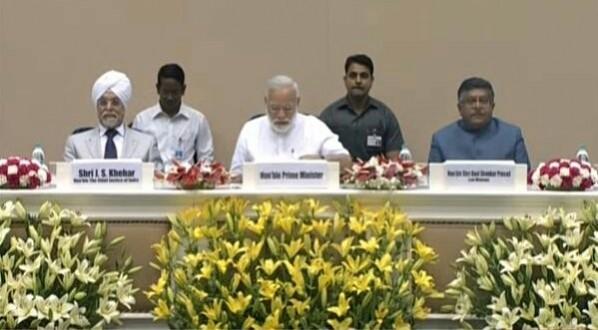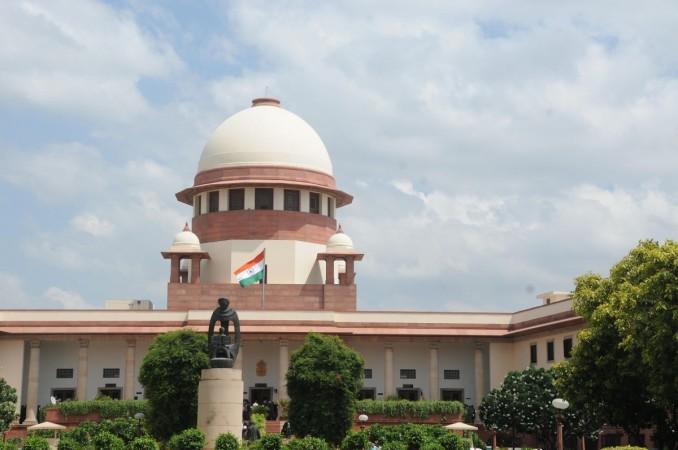
Prime Minister Narendra Modi on Wednesday inaugurated a system that will take the Supreme Court towards a paperless future and convert it into a "digital court." The move comes well within the time frame projected by Chief Justice of Indian (CJI) JS Khehar, who had in late March said the apex court would go paperless in 100 days.
Modi said at the launch of the system, in keeping with his penchant for quirky acronyms: "IT + IT = IT. This means Information technology + Indian Talent = India Tomorrow." He added: "E-governance is easy, effective and economical. It is also environment-friendly. Paperless offices will benefit the environment."
CJI Khehar has implemented a number of pragmatic steps and taken several strict decisions to cut down on the time spent by a judge of the apex court on a case, and also to cut down on the number of cases filed. Earlier this year, he not only threw out two frivolous cases but also fined the petitioners Rs 11 lakh for wasting the Supreme Court's time.
It was he who had said in March that the apex court would go digital, much in line with the Digital India campaign Modi himself had launched. Here are 10 things to know about the digital system that is being implemented to ensure that the Supreme Court goes paperless.
1. The Supreme Court is getting an Integrated Case Management Information System (ICMIS), which will make the court entirely paperless when it opens for business in July.
2. Justice Ajay Khanwelkar has been appointed the Computer Committee chairman of the Supreme Court.
3. The ICMIS will make the process of appealing in lower court orders much easier for lawyers and petitioners. All a lawyer has to do while filing an appeal in the apex court is give the number of the case from the high court, and the file will automatically be transferred to the Supreme Court. In such cases, the lawyer has to mention the grounds for appeal.
4. The ICMIS will also let the petitioner calculate his or her court fees in cases of appeal.
5. The ICMIS will keep the litigant in the loop. He or she will know at any time at what stage a case is.

6. The system will be implemented in high courts and district courts as well, and lawyers can do e-filing of their cases from their own chambers. "Every part of the filing process is monitored, so the timelines [to dispose cases] are not breached," said CJI Khehar.
7. The system "has already connected all police stations. We plan to connect all jails," says Justice Khanwelkar.
8. "Visitors [to the ICMIS portal] can obtain information from the website. Listing of cases will take place through e-processing. The oldest cases will be listed first," says Justice Khanwelkar.
9. Para-legal volunteers in gram panchayats will offer advice at the pre-litigation level. This will be taken up initially in Uttar Pradesh, Bihar, Jammu and Kashmir panchayats, said Union Law Minister Ravi Shankar Prasad.
10. CJI Khehar also described the ICMIS as a "great environmental step" because it would eliminate use of paper in court. Modi later said that an A4-size sheet of paper takes 10 litres of water to be produced.















